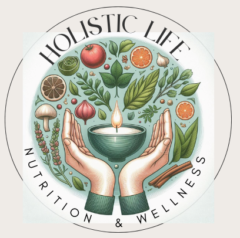
Knowing which supplements are beneficial or harmful during pregnancy can feel like navigating a complex maze. It’s crucial to have all the facts because you want to safeguard both your health and that of your baby. Relying on advice from healthcare professionals, such as obstetricians and dietitians, helps steer clear of risky supplements and focuses on beneficial ones.
When it comes to supplements prohibited in pregnancy, there are definite no-nos. Some supplements carry potential risks that can harm fetal development or cause complications. For instance, vitamin A in high doses, although essential, can pose danger when consumed in excess during pregnancy. It’s all about balance.
On a brighter note, some supplements are not only safe but actually recommended during pregnancy. Folic acid should be on top of your list, providing critical support in preventing neural tube defects. Iron and iodine also join the ranks of must-haves to promote healthy growth and prevent potential deficiencies. Your healthcare provider can offer guidance on the right amounts to include in your routine.
Figuring out what’s right for you and your baby can be a bit overwhelming, but with personalized consultation, you can confidently navigate the supplement landscape. This targeted advice ensures that you’re not only getting what you need but also avoiding those that might do more harm than good.
Critical Considerations: Knowing What to Avoid
Stepping into the world of supplements during pregnancy requires more than a basic understanding; it demands acute awareness of what to avoid. Knowing which supplements can cause more harm than good is vital for a healthy pregnancy.
Certain supplements, despite their general health benefits, should be avoided during pregnancy. For instance, supplements like Vitamin A in high doses can adversely affect fetal development. It’s all about maintaining the right levels and not overstepping them.
Similarly, some vitamins become problematic when taken excessively. High doses of Vitamin E, for example, can lead to complications and health issues. It’s key to get professional advice to ensure these aren’t part of your pregnancy supplement regime.
Misuse of vitamins doesn’t just happen; often, it’s a result of not having the right info. Pregnant women might think they’re doing the best with self-chosen supplements, but this can lead to doses that are either too high or completely unnecessary.
It’s worthwhile to remember that while the internet is full of advice, personal consultation with a dietitian or obstetrician remains irreplaceable. This step ensures a properly balanced intake, steering clear of anything that might pose risks to either you or your baby.
Creating a Safe and Effective Supplement Plan for Pregnancy
When tailoring a supplement plan during pregnancy, it’s essential to focus on what’s needed to support both you and your growing baby. This involves carefully selecting recommended supplements to ensure you’re covering all the necessary bases.
Let’s highlight some of the key players in this journey: Folic acid, iron, and calcium are often at the forefront of recommended supplements. They play a critical role in fetal development and can significantly reduce the risk of certain pregnancy complications.
Iron is particularly important as it supports the increased blood volume in the body, reducing the risk of anemia. On the other hand, calcium helps in the development of a strong skeletal structure for your baby.
Working with a dietitian can offer personalized insight into which supplements make the most sense for your specific needs. This professional guidance ensures your supplement intake is tailored according to your existing diet and health status, thus forming a balanced and effective nutritional plan.
As you embark on your supplement journey, remember that being informed and cautious is your best companion. Professional advice equips you with the knowledge to individualize your supplement regimen, ensuring that all choices contribute positively to a healthy, nourishing pregnancy experience.
